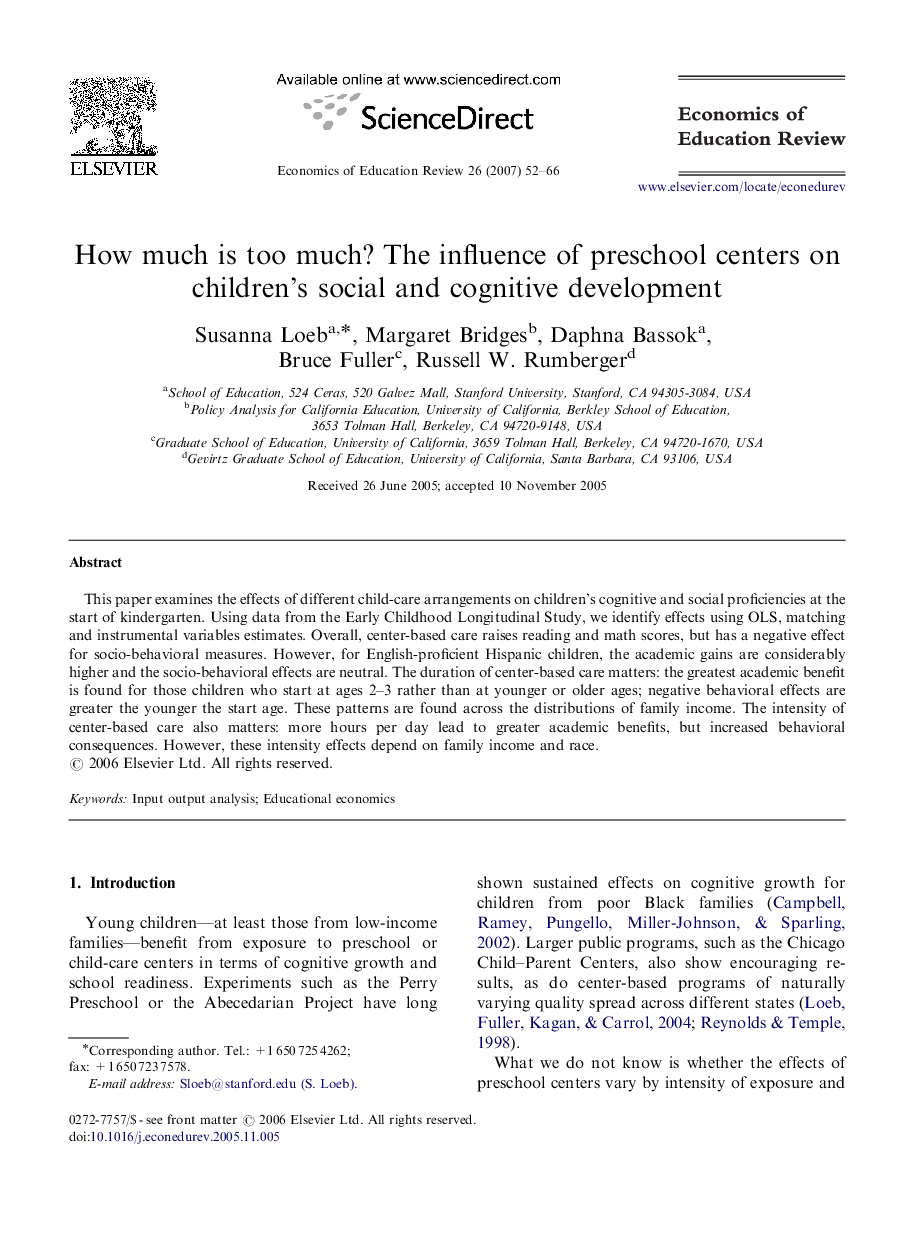| Article ID | Journal | Published Year | Pages | File Type |
|---|---|---|---|---|
| 355037 | Economics of Education Review | 2007 | 15 Pages |
This paper examines the effects of different child-care arrangements on children's cognitive and social proficiencies at the start of kindergarten. Using data from the Early Childhood Longitudinal Study, we identify effects using OLS, matching and instrumental variables estimates. Overall, center-based care raises reading and math scores, but has a negative effect for socio-behavioral measures. However, for English-proficient Hispanic children, the academic gains are considerably higher and the socio-behavioral effects are neutral. The duration of center-based care matters: the greatest academic benefit is found for those children who start at ages 2–3 rather than at younger or older ages; negative behavioral effects are greater the younger the start age. These patterns are found across the distributions of family income. The intensity of center-based care also matters: more hours per day lead to greater academic benefits, but increased behavioral consequences. However, these intensity effects depend on family income and race.
